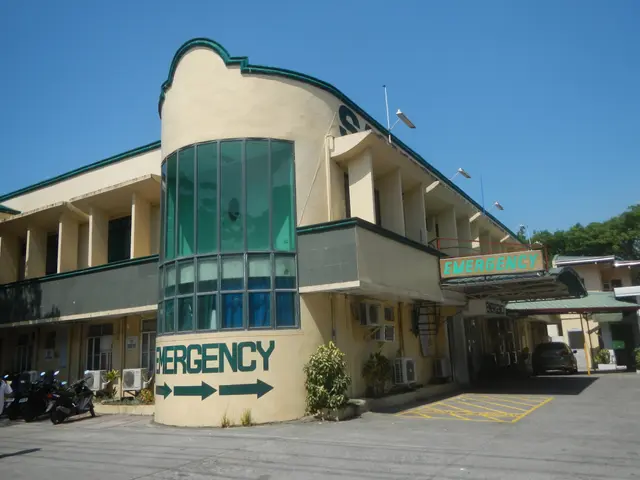Restoration of Life: Yearly Saving of 10,000 Lives by First Responders Achievable
In a recent study, it has been suggested that the implementation of mandatory CPR training in schools, regular training opportunities for adults, and the legal requirement for telephone CPR by emergency services could potentially save thousands of lives each year. However, it's important to note that this is not a definitive solution, but rather a promising direction.
Currently, the German state of North Rhine-Westphalia (NRW) is leading the way, announcing a mandatory CPR training for all students in secondary school (Sekundarstufe I) starting from the 2026/27 school year. Yet, CPR training is mandatory in only two federal states, Hesse and Saarland, and 75% of the population do not have up-to-date CPR knowledge.
The study also highlights the importance of defibrillators, but laments that they are not systematically distributed. A national registry should record the locations of defibrillators and distribute them as needed. Unfortunately, currently, their locations are not centrally recorded, and only first responder apps cover half of Germany.
Apps should be established and funded to alert qualified first responders in the vicinity in case of an emergency. However, funding and technical standards for these apps are inconsistent.
The study also addresses the issue of bystander apathy. Around 37% of people surveyed stated they would not attempt to help in an emergency, and many people currently do not feel confident enough to perform chest compressions and provide mouth-to-mouth resuscitation if someone collapses beside them.
The risk of irreversible brain damage increases rapidly after four minutes without CPR, and on average, it takes the emergency services seven minutes to arrive, and even longer in rural areas, in addition to the time taken for the emergency call. This underscores the need for bystander intervention.
The study, conducted by the ADAC Foundation in Munich, suggests that up to 10,000 lives in Germany could be saved annually if bystanders administered immediate first aid to those experiencing a cardiac arrest. Currently, only about 11% of those who experience a cardiac arrest outside of a clinic survive.
The study recommends targeted funding of volunteers in first responder structures and encourages the adoption of telephone CPR and the consistent implementation of first responder apps. With these measures, Germany could take a significant step towards reducing the number of preventable deaths due to cardiac arrests.








